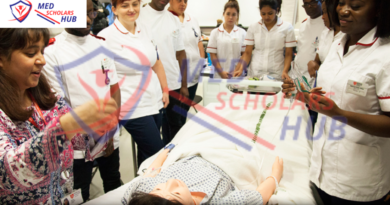The Crucial Role of Health Education for Geriatric Patients
The demographic landscape is shifting. By 2050, one in six people globally will be aged 65 or older, highlighting the urgent need to prioritize the health and well-being of our ageing population. In this demographic transformation, effective health education emerges as a critical tool to empower geriatric patients, enabling them to navigate the complexities of their health and maximize their quality of life.
Impact of Health Education for Geriatrics on Elderly
Investing in health education for geriatric patients yields a multitude of benefits. Studies have shown that it can:
- Improve health outcomes: Educated patients are more likely to adhere to medication regimens, manage chronic conditions effectively, and prevent the onset of new ones (Bodenheimer et al., 2005).
- Increase patient engagement: When patients understand their health conditions and treatment options, they become more active participants in their care, leading to improved communication with healthcare providers and shared decision-making (Hibbard et al., 2004).
- Boost autonomy and independence: Health education empowers geriatric patients to make informed choices about their health and well-being, fostering a sense of control and independence (Lorig et al., 2006).
- Reduce healthcare costs: Educated patients utilize healthcare services more effectively, leading to a decrease in unnecessary hospitalizations and emergency room visits (Greenberg et al., 2003).
Related Article: Impact of General Practice Education for Nurses on Adult Lifestyle – Risk Reduction Strategies
Effective Strategies for Health Education in Geriatrics
Reaching geriatric patients effectively requires acknowledging their unique needs and preferences. Here are some key strategies for successful health education in this population:
- Focus on practicality and relevance: Information should be directly applicable to their daily lives and address their specific concerns and priorities (Clark & Cunningham, 2018).
- Utilize multiple learning modalities: Cater to diverse learning styles by incorporating a variety of methods, such as interactive workshops, visual aids, written materials in large print, and audio recordings (National Institute on Aging, 2020).
- Embrace technology: Leverage telehealth platforms and online resources to reach patients in their homes or assisted living facilities, overcoming mobility limitations and geographical barriers (Al-Janabi et al., 2015).
- Promote social learning: Encourage peer support groups and community-based programs that foster interaction and knowledge sharing among older adults (Ory et al., 2013).
Real-Life Stories: The Impact of Health Education in Action
Let’s consider the experiences of two geriatric patients:
- 72-year-old Mary: Diagnosed with diabetes, Mary initially struggled to manage her blood sugar levels. However, participating in a diabetes education program equipped her with the knowledge and skills to adjust her diet, monitor her blood sugar, and choose appropriate physical activities. This empowered Mary to take control of her health, leading to improved glycemic control and a renewed sense of well-being.
- 80-year-old John: Following a fall and subsequent hospitalization, John faced anxiety about returning home and managing his pain medication. Participating in a falls prevention workshop and medication management training provided John with essential knowledge about fall prevention strategies, safe medication practices, and pain management techniques. This newfound confidence enabled John to confidently return home and maintain his independence.
These stories illustrate the transformative power of health education in the lives of geriatric patients. By equipping them with the right tools and knowledge, we can empower them to become active partners in their healthcare journey, promoting healthy ageing and enriching their quality of life.
Related Article: Education for Specialization in Elderly Care – Are Geriatricians in Demand?
Building a Future of Empowered Geriatric Patients with Professional Geriatric Education
Investing in comprehensive health education programs for geriatric patients is not only a moral imperative but also a strategic investment in the future of healthcare. By prioritizing this essential component of elder care, we can build a healthcare system that caters to the unique needs of our ageing population, empowering them to age with dignity, autonomy, and well-being.
Sources:
- Bodenheimer, T., Chen, K., & Grumbach, K. (2005). Patient activation: Helping patients and families take control of their health. Annals of Family Medicine, 3(4), 392-400.
- Clark, M. I., & Cunningham, S. A. (2018). Patient education for older adults: Strategies for enhancing self-management of chronic conditions. The Gerontologist, 58(2), 303-312.
- Greenberg, P. E., Satterfield, J. M., Croog, S. H., & Pignone, M. P. (2003). Effect of teaching communication and problem-solving skills to patients with chronic medical conditions on adherence to medical recommendations: A randomized controlled trial. Journal of the American Medical Association




